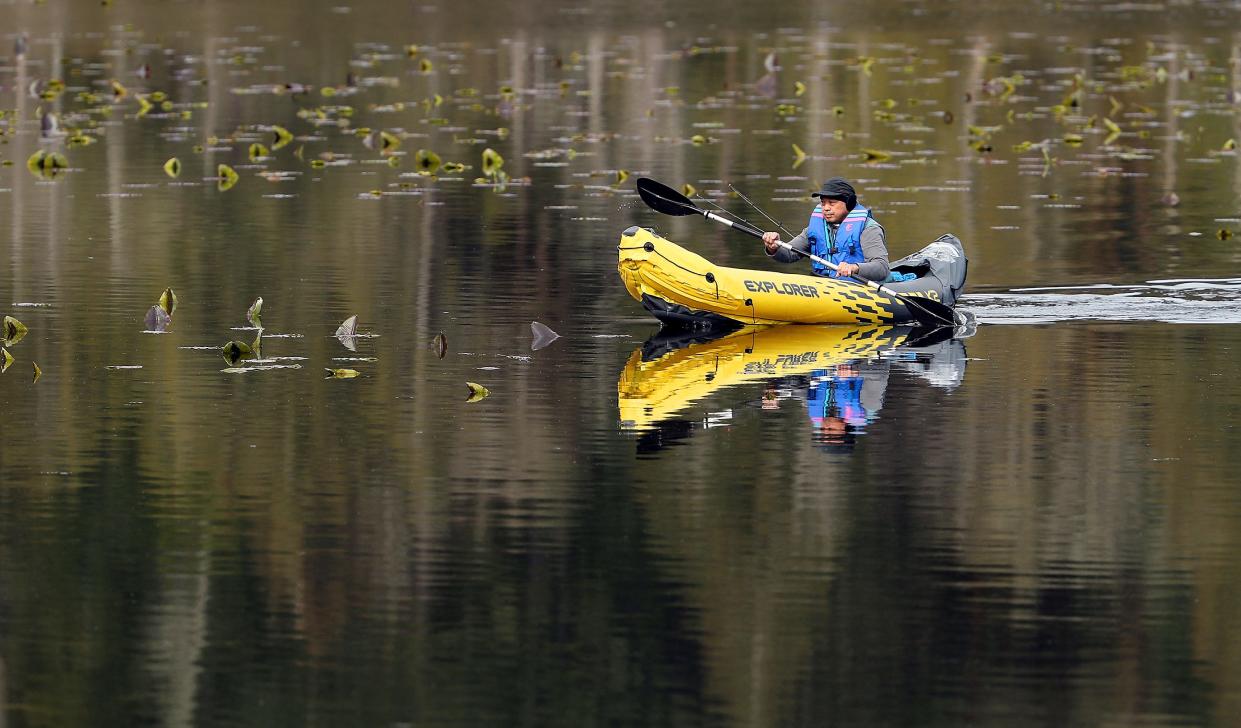Kitsap Lake access closed due to potentially toxic algae bloom

Just as the spring sunshine and warmer weather has begun to arrive, Kitsap Lake is once again off-limits for contact because of cyanobacteria, commonly known as blue-green algae.
The Kitsap Public Health District issued a no-contact warning for the lake on Wednesday, advising residents to avoid swimming, wading or playing in the water because of “potentially toxic” cyanobacteria. No illnesses have been reported at this time, according to the health district.
The advisory urges residents and their pets to avoid all contact with lake water. People should also avoid eating fish caught during the algae bloom, stay away from ingesting lake or stream water and rinse watercraft that has had contact with the water thoroughly before going to other lakes.
Access to Kitsap Lake has regularly been limited in recent years during summer months, largely attributable to a slow turnover rate for water in the lake, which inhibits healthy nutrient cycling. More phosphorous and nitrogen in the water acts as fuel for the blooms, according to Kitsap Sun archives. The city has invested in potential solutions, beginning in 2020 with project to spray the lake with a compound called Phoslock to help remove phosphorous from the water, as well as harvesting aquatic vegetation, which can produce excess phosphorous as it decomposes.
At the Bremerton City Council's April 19 meeting a contract was renewed for aquatic treatment and vegetation harvesting with the company AquaTechNex, which has handled the project since 2020. The city will pay $525,000 for treatment services at Kitsap Lake over the coming three years.
The health districts asks that residents who live near the lake or have recently visited the lake to call 360-728-2235 if they have observed an algae bloom, large numbers of dead fish in the lake, unexplained sickness or death of a pet cat or dog, or if after contact with the water conditions like skin rashes, dizziness or weakness, abdominal pain, diarrhea or vomiting develop.
If someone has entered the water and experiences skin rash, dizziness or weakness, respiratory allergy, abdominal pain, diarrhea, or vomiting.
This article originally appeared on Kitsap Sun: Kitsap Lake access closed due to potentially toxic algae bloom

